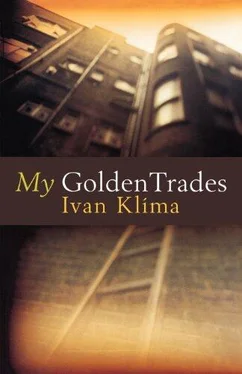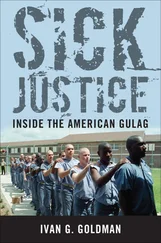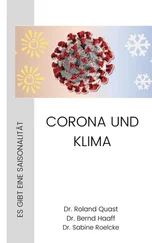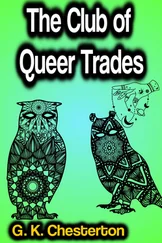Ivan Klima - My Golden Trades
Здесь есть возможность читать онлайн «Ivan Klima - My Golden Trades» весь текст электронной книги совершенно бесплатно (целиком полную версию без сокращений). В некоторых случаях можно слушать аудио, скачать через торрент в формате fb2 и присутствует краткое содержание. Год выпуска: 1998, Издательство: Granta UK, Жанр: Современная проза, на английском языке. Описание произведения, (предисловие) а так же отзывы посетителей доступны на портале библиотеки ЛибКат.
- Название:My Golden Trades
- Автор:
- Издательство:Granta UK
- Жанр:
- Год:1998
- ISBN:нет данных
- Рейтинг книги:4 / 5. Голосов: 1
-
Избранное:Добавить в избранное
- Отзывы:
-
Ваша оценка:
- 80
- 1
- 2
- 3
- 4
- 5
My Golden Trades: краткое содержание, описание и аннотация
Предлагаем к чтению аннотацию, описание, краткое содержание или предисловие (зависит от того, что написал сам автор книги «My Golden Trades»). Если вы не нашли необходимую информацию о книге — напишите в комментариях, мы постараемся отыскать её.
My Golden Trades — читать онлайн бесплатно полную книгу (весь текст) целиком
Ниже представлен текст книги, разбитый по страницам. Система сохранения места последней прочитанной страницы, позволяет с удобством читать онлайн бесплатно книгу «My Golden Trades», без необходимости каждый раз заново искать на чём Вы остановились. Поставьте закладку, и сможете в любой момент перейти на страницу, на которой закончили чтение.
Интервал:
Закладка:
Since the conversation had turned to the organs of public security, the doctor reminisced about a schizophrenic wrestler who had once been a patient of hers. This wrestler had a theory about life, or rather about death, that interested me the moment I heard it. He thought that death was engaged in an unending struggle for control of the world, and to that end, She hired various assistants. Death and Her assistants moved among us, the living, in constantly changing disguises. On green days, which the wrestler alone was able to determine, they would dress up in police uniforms. That was when they were most dangerous.
The wrestler would never harm a soul, the doctor went on, but on the green days he had to be kept away from policemen in uniform. If he saw one, he would attack. He was a powerful man anyway, but when the fit came upon him his strength was amplified. Not only would he take the officer's pistol and night stick away from him, he would remove his cap, rip off his epaulettes and try to strip him of
his uniform. Then he'd throw everything down the sewer or stuff it into a garbage can and run. Most of the time the police caught him, took their private revenge, and then returned him to the institute with a warning.
I asked, not without a certain malicious satisfaction, how often he indulged in such delights. The doctor grew sad. They had scarcely let him out once every six months, and then only when they felt he had become completely quiescent. Last fall, however, he hadn't returned, and they found him a week later with a broken back in a field some distance from the institute.
So, in fact, he hadn't been wrong.
The doctor shrugged her shoulders.
The borderline between the madman and someone with brilliant insight into things that remain a mystery to others is usually infinitesimally narrow.
My daughter is afraid neither of perverts nor of those who should be trying to catch them. She seldom thinks about death, but when she sees through its disguises and glimpses it, she cries. As befits her fourteen years, however, she prefers to giggle even when there is no reason to. She loves driving fast, she's a secret smoker, and whenever she can find the excuse, she hangs out in the evening with fellow students of dubious reputation. When we take her to the theatre, she responds to the performance as though it were real life. Unlike me, she plays the piano, strums the guitar and the mandolin, and knows how to dance. She says that if I were willing, she'd teach me too.
My supply of willingness, however, has been exhausted in other areas.
'So how about it? Are you coming to the ball with us?'
I was trapped. So far, I had managed to avoid going to
balls, but now my friends were trying to persuade me to overcome, just this once, what they called my negative relationship to dancing. I could hardly refuse them. My friends were among those hounded and harassed by the police, in some cases even more than me. My attendance at this particular ball, though the thought annoyed me, had ceased to be a simple matter of my relationship to dancing.
Almost all of my friends had signed Charter 77, which meant that they had committed themselves (in the words of the Charter) 'both individually and as a community to work towards recognition and respect for civic and human rights in our country and in the world.' The authorities were firmly convinced that they and they alone were competent and entitled to protect the people and their rights, and they took the Charter as a declaration of war. The Charter signatories were picked up and interrogated; their flats were searched. When those carrying out orders discovered nothing more incriminating than ideas and books that they alone found offensive, the authorities had the Chartists thrown out of their jobs, put under surveillance, publicly vilified. Their passports and drivers' licences were confiscated, their telephones disconnected. This battle had gone on for a year, one side obstinately demonstrating the justice of their claims, the other side demonstrating their vast superiority in strength. One of my persecuted friends decided that the season of balls would be a good time to have some fun and relax.
The ball they were to attend was organized by the railway workers. Though my friends could not hold a ball on their own, they believed no one could object to their attending a function organized by a group as politically correct as the railway workers.
I suspected that the plan to join the railwaymen for an evening could not remain a secret. I believed my friends were foolish to think that those in disguise would not begrudge them an evening of dancing. My wife and daughter, on the other hand, had begun discussing what they would wear the moment our friends offered us tickets.
The day of the ball was overcast. A chilly wind spread a sheet of smoke, soot and ash over the city, and the streets were covered with a slick film of dirt. Anticipating disaster, I drove with extra care and parked the car as far as possible from the hall where the dance was to take place. My wife had had her high-school graduation dress repaired and altered for the occasion, and she still looked like a young girl. My daughter had made herself a gown of shiny scarlet taffeta. It was her first real evening dress; I could see that she was rehearsing in her mind the moment when she would take off her coat and enter the ballroom.
The women concentrated on negotiating the damp, treacherous pavement while I looked around. I noticed that on Peace Square, where we were headed, white and yellow squad cars bearing the two large, widely ridiculed letters indicating the Public Security forces — VB — were parked in places where it was forbidden to stop. Another white and yellow car, its siren wailing, wheeled into the square and sped up to the hall.
Even I could see that a green day was upon us..
Usually at this time of year, the small park in front of the St Ludmilla Church is empty, but now it was filled with men who, judging from their appearance, were obviously not regulars in the park. Corruption was in the air, and if you listened closely you could hear a quiet scraping sound — the noise of radio interference — like carborundum
sliding over a scythe blade or at least over hidden stilettoes. Soon we ran into the first group of friends, who announced that we would not get into the ball. When the people at the door realized we were not railway workers, they would give us our money back and turn us away.
As far as I was concerned, it made no sense to go any further, but my wife and daughter protested. They had finally managed to drag me out to a dance, so we should at least see for ourselves if it was impossible to get in.
My wife took me by one arm, my daughter by the other, and they would almost have persuaded me to pretend to be a railwayman (which, by the way, as a child I had always longed to be) had my friend Pavel not suddenly appeared in the park, supported by his wife.
My friend Pavel is one of those people who are plagued by the notion that they must tell others how to live in order to make the world a better place. That's why he's constantly getting mixed up in politics. He may well have been slightly more involved than others; that would explain why he was the only one who had suffered a blow to the head when, earlier, the mass expulsion of would-be ballroom dancers had taken place.
His driver's licence had long been confiscated, so he was looking for someone to take him to see a doctor.
I had always wanted to be an engine driver. When I was a child, there was nothing exceptional about this: there were almost no cars then, and truck drivers had not yet become an object of childhood dreams. I can no longer say exactly what it was about being an engine driver that attracted me: whether it was the desire to control the motion of an enormous hunk of metal, or the lure of faraway places. Whatever it was, I could stand by the kitchen
Читать дальшеИнтервал:
Закладка:
Похожие книги на «My Golden Trades»
Представляем Вашему вниманию похожие книги на «My Golden Trades» списком для выбора. Мы отобрали схожую по названию и смыслу литературу в надежде предоставить читателям больше вариантов отыскать новые, интересные, ещё непрочитанные произведения.
Обсуждение, отзывы о книге «My Golden Trades» и просто собственные мнения читателей. Оставьте ваши комментарии, напишите, что Вы думаете о произведении, его смысле или главных героях. Укажите что конкретно понравилось, а что нет, и почему Вы так считаете.












